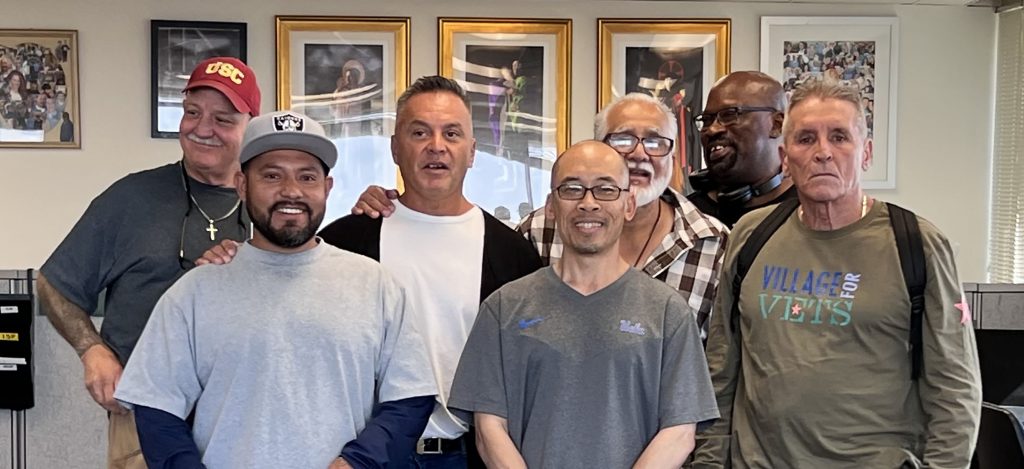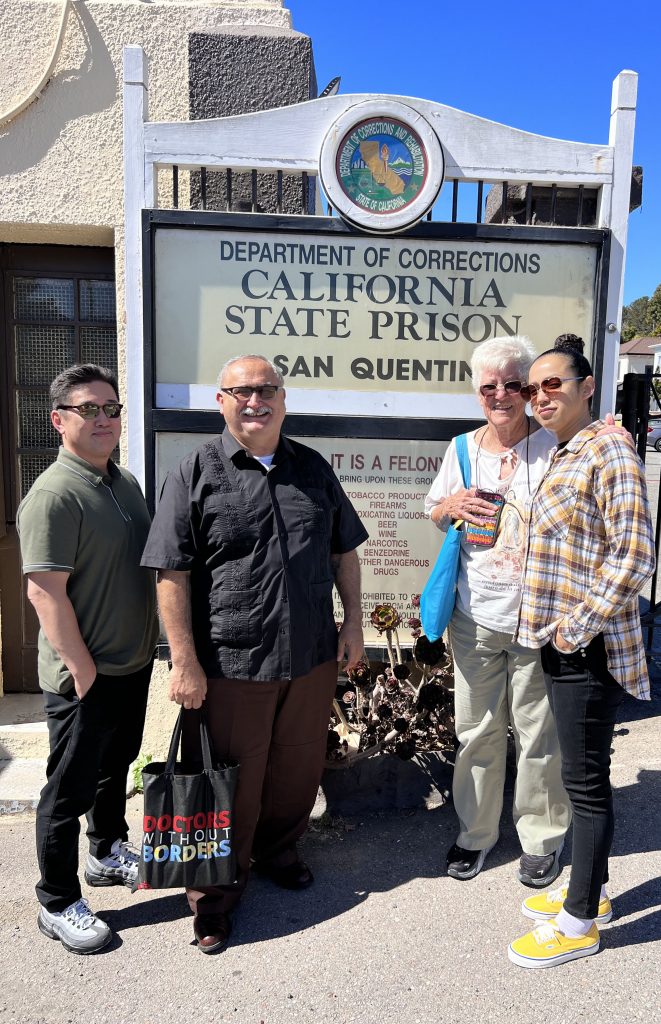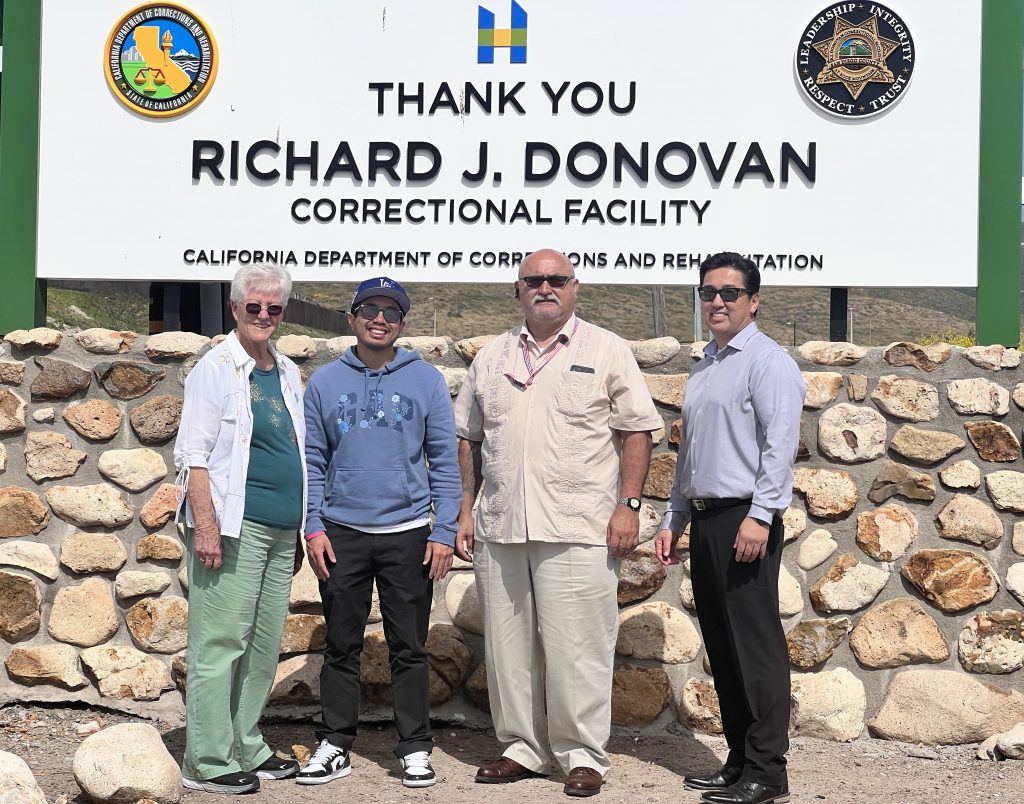No Longer a Danger

Crime. It decreased nationally during shelter-in-place, but it’s now on the rise and exceeding pre-pandemic levels primarily due to homicide and assault cases. More death. More pain. More loss. Why? What makes a person commit a crime? Once they do, can they be restored to society’s good graces? The Partnership for Re-Entry Program (PREP) says “Yes.” They believe in restorative justice and the power of faith to transform a person from a criminal to a productive member of society.
Restorative justice is a system of criminal justice which focuses on the rehabilitation of offenders through reconciliation with victims and the community at large. Victims, offenders, and the community are brought together to repair harmony among the parties. PREP emphasizes the principles of belief in God, faith in Jesus Christ, and adherence to the Catholic Social Teachings as important to sustaining a positive life. PREP believes offenders can be transformed and redeemed.
An individual’s criminal behavior always has a backstory. Trauma and a dysfunctional home life are significant factors. Abuse often begets abuse. Deteriorating neighborhoods, lack of resources, barriers to employment, connecting with “friends” already involved in crime are all markers on the road to a life of crime. There are also physiological and psychological reasons for criminal behavior. Internally, greed, jealousy, anger, revenge, desire for power, or pride can serve as motivation. Some or all these factors can lead to a person’s criminal action.
But the act is not the end. If there is life, there is hope. Upbringing and environment can lead to criminal behavior, but faith, hope, and love can prevail. PREP taps into those virtues and offers 13 multi-week, voluntary, correspondence courses for incarcerated women and men, with topics such as:
- Anger Management.
- Confronting Criminal Thinking.
- Victim Awareness.
- Financial Literacy.
- Turning Point.
These courses are designed to promote personal growth through self-examination. The men and women that participate in the program are looking for help in changing their thinking and actions so that they can no longer be considered a danger to society by a parole board.
The parole board’s purpose is to evaluate whether an inmate is suitable for parole; that they do not pose too great a threat to public safety. The board’s considerations include, but are not limited to the following:
- The circumstances of the offense.
- The inmate’s level of remorse.
- The inmate’s behavior in prison (good and bad).
- The inmate’s involvement in rehabilitative programs.
- How the inmate plans to re-enter the community.
- Input from the victim and their family or representative.
The pressure to prove to a parole board that one’s crime is in the past and that it is possible to be a stable, productive member of a community is not easy. How does one prove that the change is real?
A couple of gentlemen who were system-impacted and now work at PREP offered their answers to the question, “How do you know when you are no longer a danger to society?” Both responses indicated a point of enlightenment. Both were the result of a journey. Both placed the men in context of the people and place where they lived. The first said his epiphany came when he realized the impact of his criminal behavior on his community. The other walked back onto the straight and narrow when he truly accepted responsibility for his crime. These men were changed.
Other men, who are still incarcerated and participating in PREP courses are undergoing transformation now. One was denied parole for not having enough “clean-time” and was considered “unpredictable.” He says, “Change for me is for LIFE no matter the outcome. I will always stay true to myself, to God, to the people I love, and to all those I’ve harmed due to my old way of conduct.” He speaks with truth and courage.
PREP acknowledges that the individual must be ready and willing to make a change. The courses they offer help in that process. The topics can be selected as needed. Over the last 20 years, PREP has helped more than 40,000 inmate course participants with 5,000+ in the Gang Awareness Recovery course. Over 2,000 lifer inmates involved in PREP have been released. But PREP’s purpose is not to get people out of prison, rather to change lives.
Once an inmate is released on parole, PREP offers simple advice and the support to follow it. They say:
- Be a good person.
- Join a support group.
- Participate in a church group.
- Give back to your community.
Often, men and women who were helped by PREP stop by the offices and perform chores or office tasks. They want to give back, express gratitude, and stay connected to a source of goodness in their new lives.
PREP’s outreach is expanding. Several staff members visit prisons and share the value of using PREP courses to reflect on the road that led to their crime and embrace the road that can bring them healing and transformation. The message is loud and clear. “I have done it! So can you!” The bond between staff and inmates is strong.
PREP also offers support to parolees as they return to the community. Over 250 “Returned Citizens” have come to PREP for counseling and financial support. The staff always offers encouragement that the road to freedom is the good road, the road less traveled, the road to continue traveling.
PREP began on May 12, 2002, as a re-entry mentorship program under the leadership of Sister Suzanne Jabro, CSJ. Eventually, it evolved into a restorative justice program for the long-term (lifer) prison population. Sister Mary Sean Hodges, OP, led the organization for 17 years. Now, Tony Kim, a participant of PREP, serves as the Director. He believes that we all live the journey of death and life each day. Each day we must CHOOSE LIFE!
I call heaven and earth to witness against you today, that I have set before you life and death, blessing and curse. Therefore, choose life, that you and your offspring may live…
Deuteronomy 30:19
Bibliography
Causes of Crime. Encyclopedia.com.
Lofstrom, Magnus & Martin, Brandon. December 14, 2021. After Decreases in 2020, Both Property and Violent Crimes Are Up in 2021. Public Policy Institute of California.
Northeastern University, College of Social Sciences and Humanities. 27 January 2023. How COVID-19 Changed Crime in the U.S. https://publicaffairs.northeastern.edu/articles/us-crime-rate-during-pandemic/
SCLG Law Group. Board of Parole (Lifer) Hearings in California. SHouseLaw.com
 USA
USA




